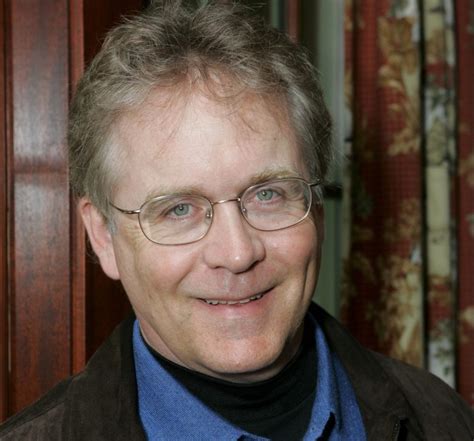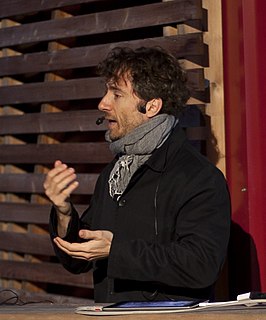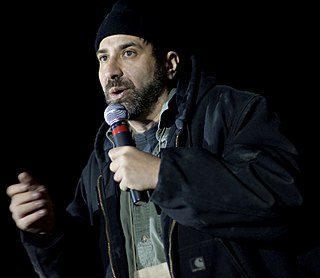A Quote by Mark Frost
'Hill St.' was very good, but it was very impersonal work for me. I wrote about that place as if I was a visitor. It wasn't what my life was like. It was a great place to learn the craft of how to shape a scene, but I wanted a chance to write about more personal themes and obsessions.
Related Quotes
Someone asked me if I would like to write a man on death row, be a pen pal, and I was like, sure. I volunteered. I had been in a place in my life - a relationship had ended; my parents were getting elderly - I was kind of adrift. The name that was given to me, just randomly, was Todd Willingham. And he wrote me a letter, and in this letter, he thanked me for writing him and [said that] if I would like to visit, he would put me on his visitor list... I was just really struck by the letter from Todd. It was very polite; it was very kind.
Even my colleagues don't read classic criticism. And my feeling is that if you don't do that then you're not really practicing your craft. That's how you learn how to do it. You don't learn how to write about jazz just from listening to jazz. You learn how to write by reading the great writers and how they worked, the great music critics.
We're in a culture where everything is either consumption or production, so child care is either a very, very bad-paying form of work or a very expensive luxury that you purchase. There isn't a good place in our picture of the world for what caregiving is about. Even teenage babysitters have sort of disappeared from the scene.
One respect in which I'm very much my father's son is how I feel about Joyce. 'Ulysses' is very much about daily life, when you get into this other guy's life and you learn about the things he cares about, and why he cares about them. And then, very indirectly, very subtly, you learn why politics has impacted his life, too.
Scotland is a much lighter and more fun place than I thought it was. I was miserable when I was there. But it wasn't Scotland's fault. It was my circumstances. I was - I hate to say the word humbled - but that's what it felt like. I was wrong about this place. This is a great place full of very fun people.
I wrote the poems in Charms Against Lightning one by one, over almost a decade, and I did not write them toward any theme or narrative. But once I really got serious about putting together a book, I began to see that in fact there were themes across the poems, if only because my own obsessions had brought me back time and again to the same ground. I realized that any ordering of the poems would determine how those themes developed over the manuscript, and how the collection's dramatic conflicts were resolved.
I'm a very private person, so obviously I don't enjoy talking about more personal matters. But at the same time I care very much about my work and I would like people to know that it exists. So I appreciate that there's a meeting point, where I would like people to know about the work that I'm doing, and that requires me to talk about it.
I wrote the script to 'Lady Bird,' and it really came out of a desire to make a project about home - like, what the meaning of home is, and place. I knew Sacramento very well, obviously, growing up there, and I felt like the right way to tell a story of a place was through a person who's about to leave it.
If you're going to write about something it becomes a damn sight more interesting than if you're not going to write about it, because you engage with it actively in a way that you wouldn't if you were just passing through or if you were going to St Helens to visit family or if it was a place that made you resentful because you'd always wanted to escape from there.







































